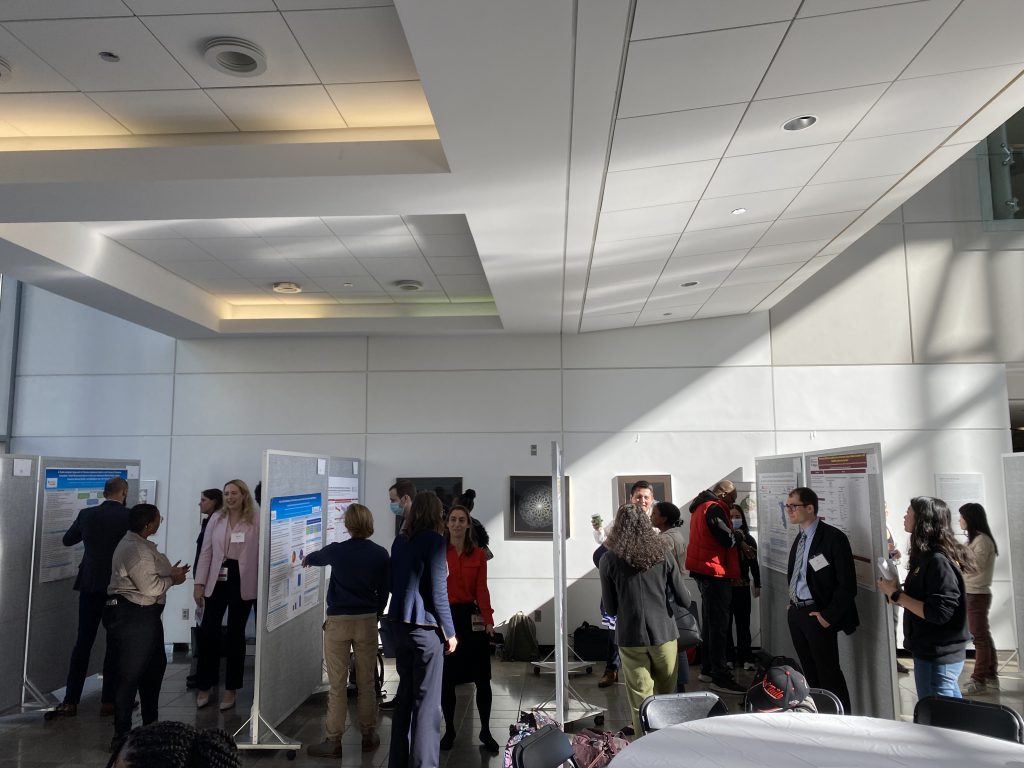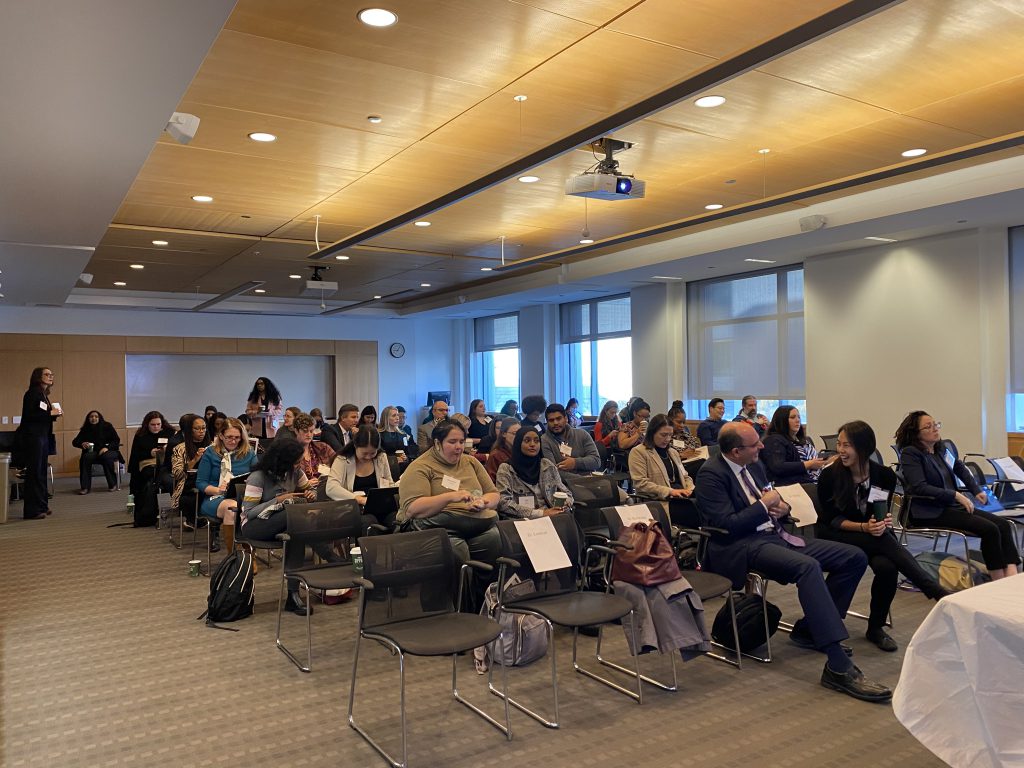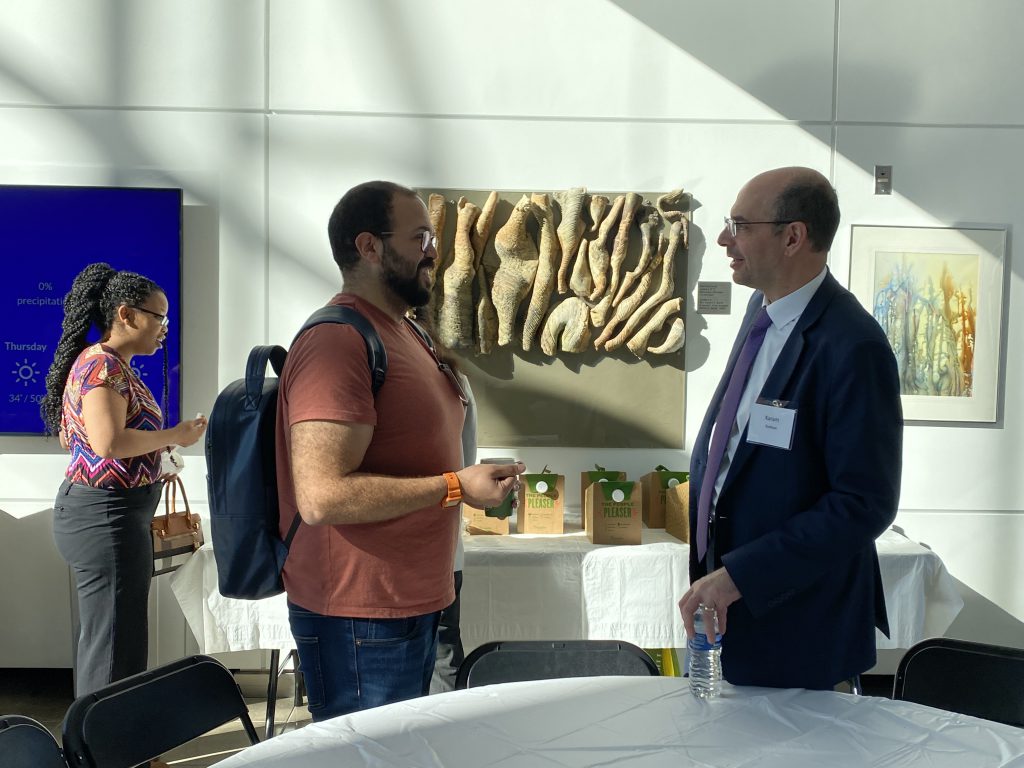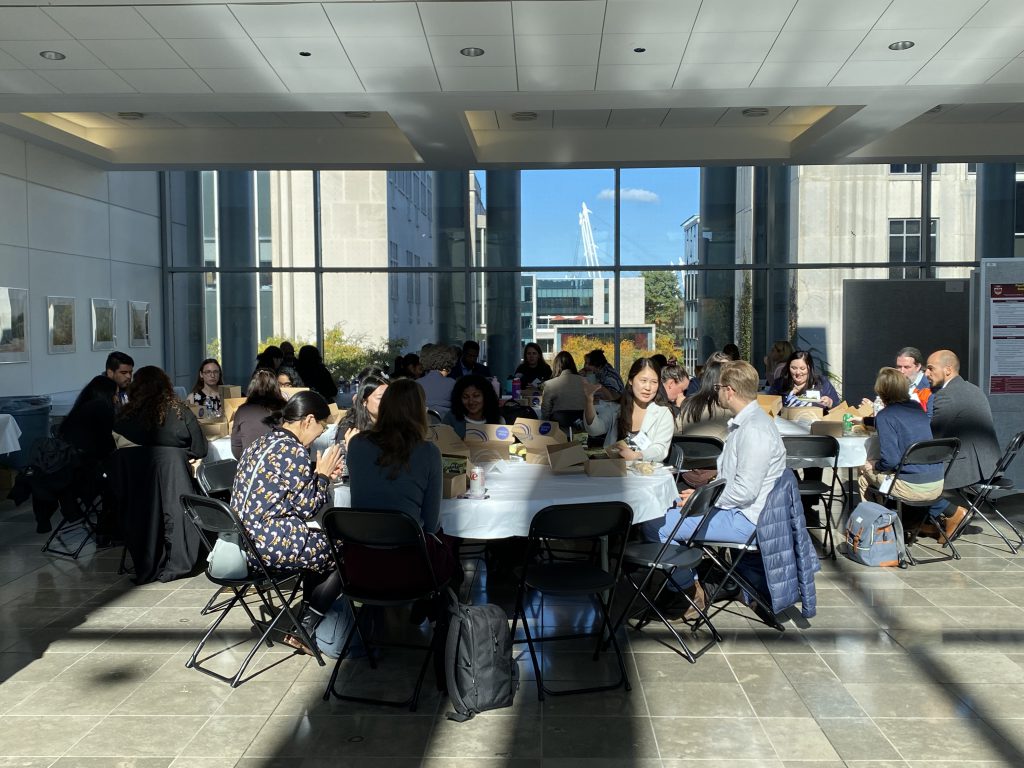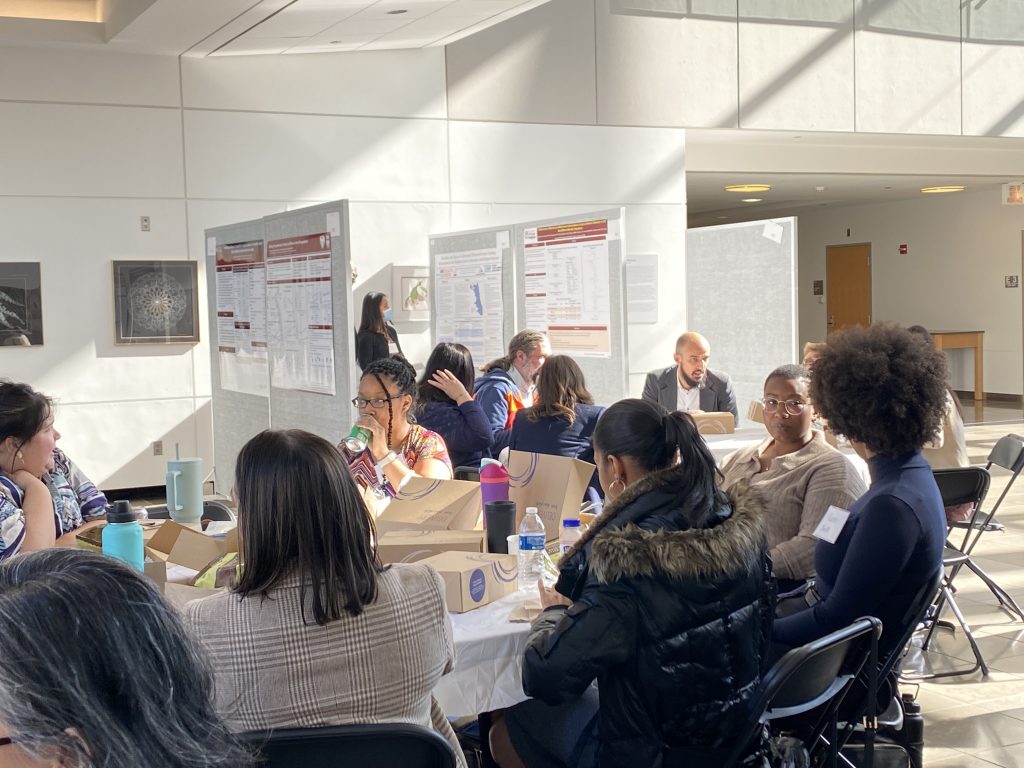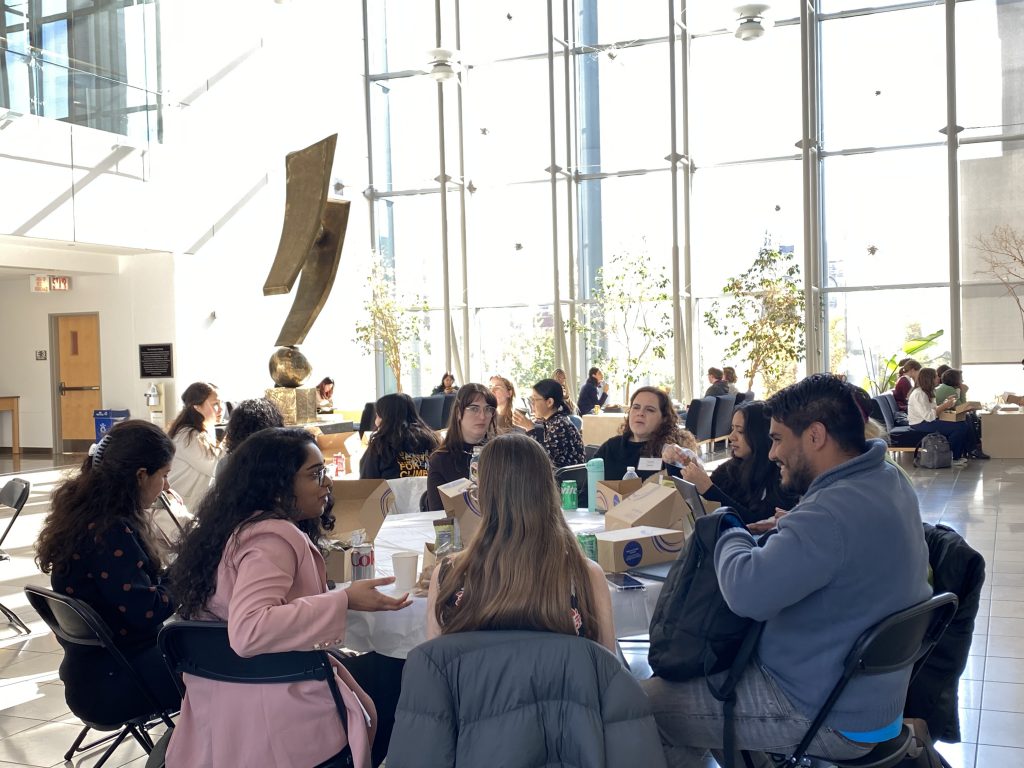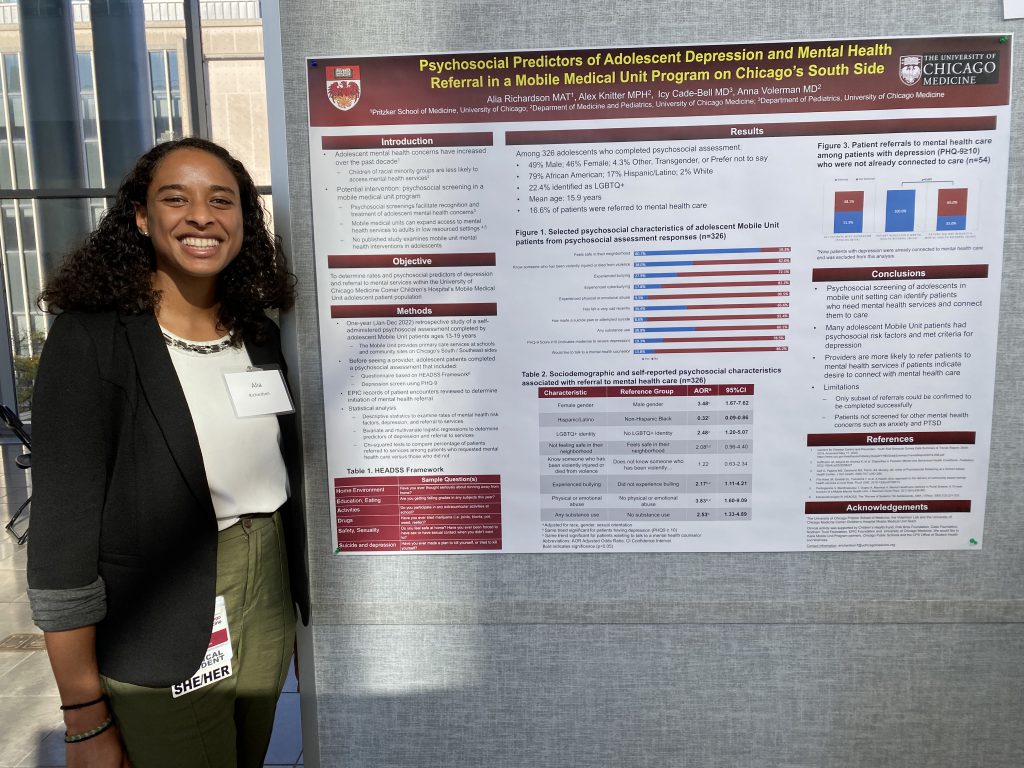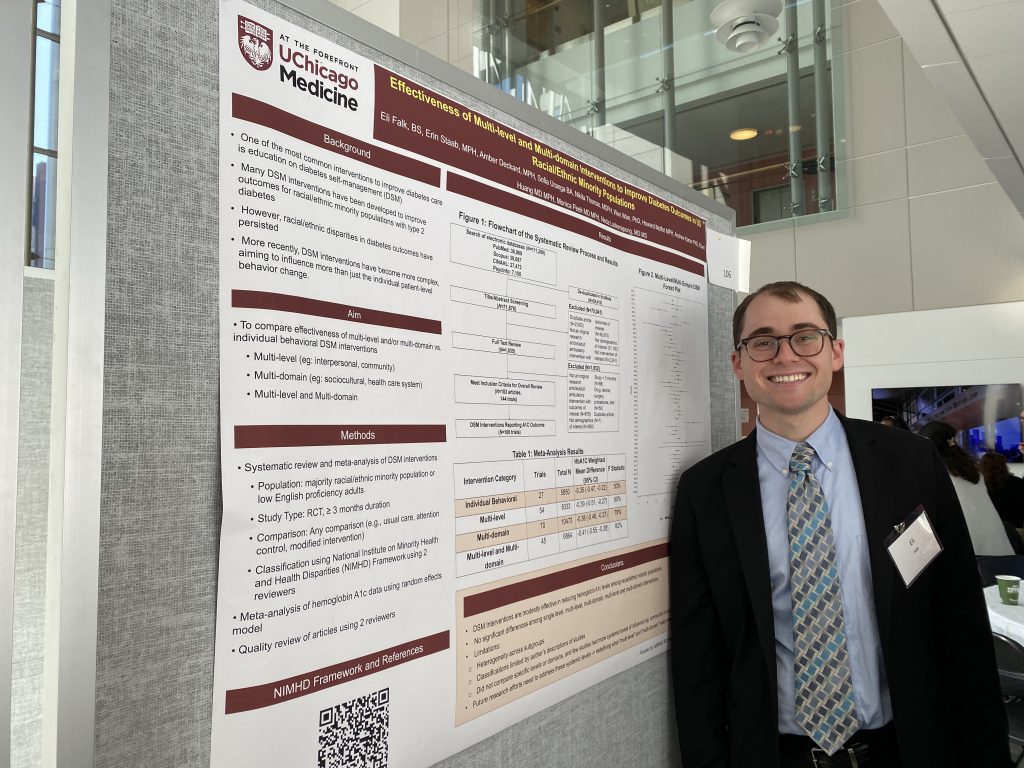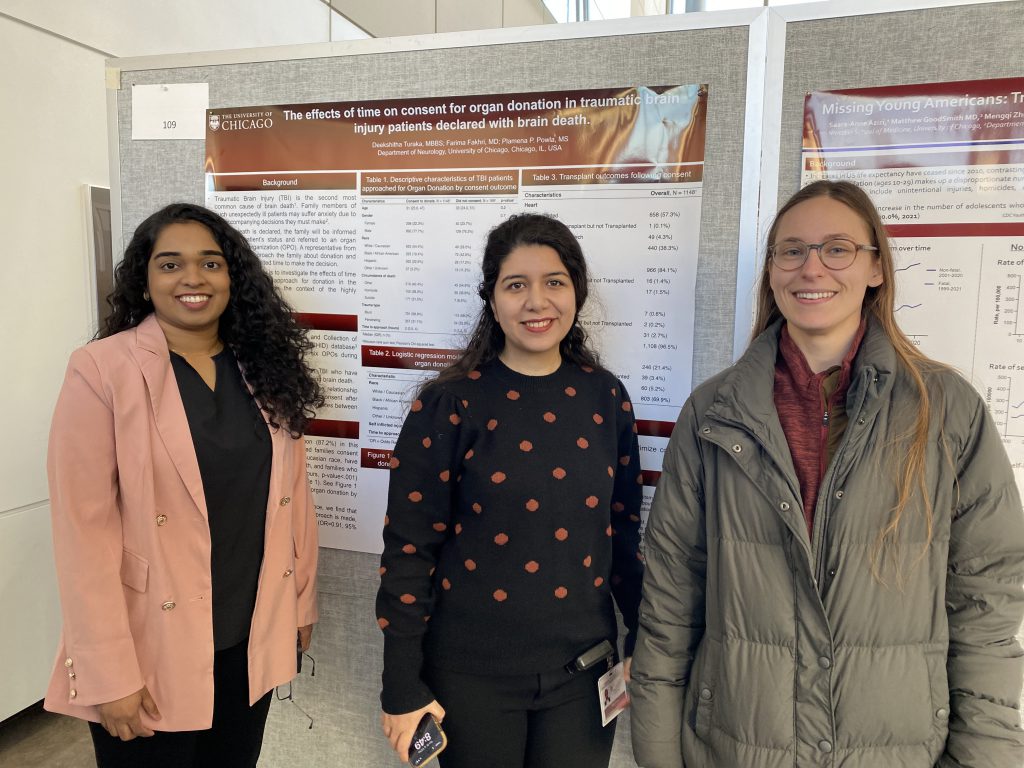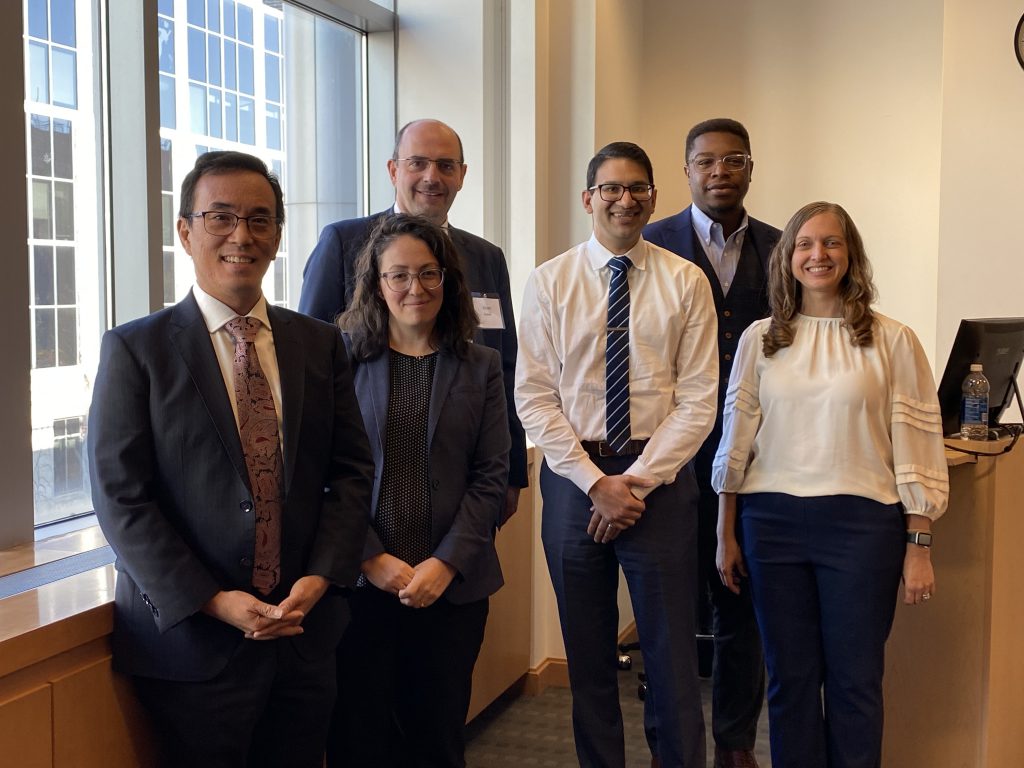December 22, 2023
On October 30, 2023, the Center for Chronic Disease Research and Policy hosted its 11th Annual Symposium, Strengthening Adolescent Mental Health and Health Policy, at the Gordon Center for Integrative Sciences at the University of Chicago. With a keynote lecture by Illinois Department of Public Health Director and UChicago alumnus Sameer Vohra, MD, JD, MA, the symposium also featured talks by Karam Radwan, MD, DFAACAP, Division Chief for the Child and Adolescent Psychiatry program at the University of Chicago, Chuka Emezue, PhD, MPH, CHES, Assistant Professor in the Department of Women, Children, and Family Nursing at Rush University College of Nursing, and Melissa Kull, PhD, Senior Researcher at Chapin Hall. The symposium was co-organized and moderated by CDRP faculty affiliate Anna Volerman, Associate Professor of Medicine and Pediatrics at University of Chicago, and brought together students, researchers, public health officials, and community members to discuss the growing mental health crisis among adolescents.
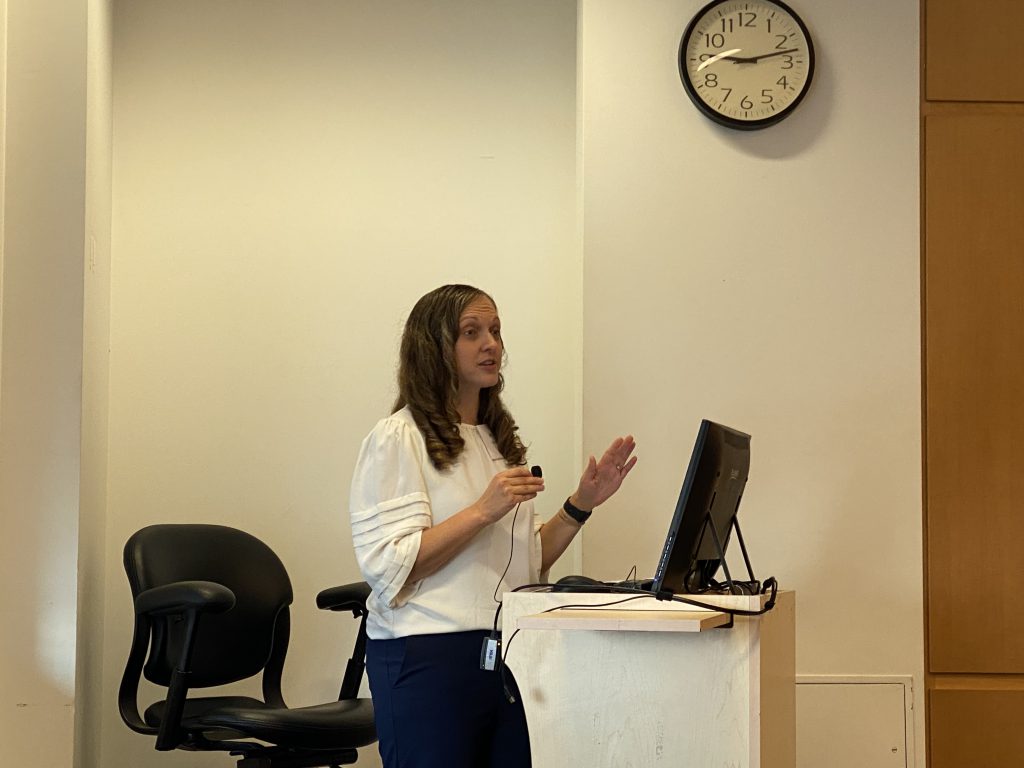
“Today’s youth face unprecedented challenges: the negative effects of social media, greater academic pressures, the burden of childhood traumas and traumatic experiences, as well as higher rates of alcohol and substance abuse,” said Volerman in her introduction. “As someone who takes care of both adults and children, I know that youth mental health challenges affect everyone–not just children and adolescents, but also parents, grandparents, teachers, social workers, and all of the members of the community in which they live. It is time to put mental health on an equal footing with physical health. We must advance mental health care and policies that make it easier to screen, to diagnose, and to treat this problem to support the youth, who are really our future.”
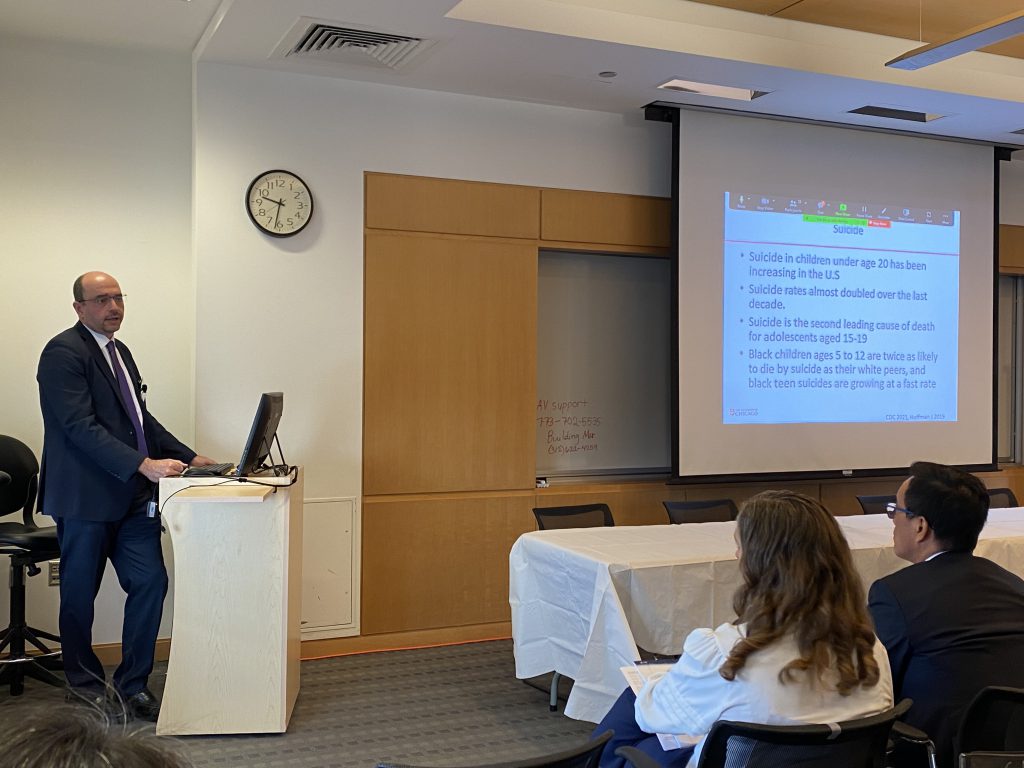
“Half of adolescents now have what we call a psychiatric problem. Twenty percent of adolescents have a severe psychiatric problem,” said Radwan in his talk, ““Resilience Across Time: Navigating Adolescents and Families in Crises, Reflecting on the Past and Envisioning the Future,” in which he discussed the current state of adolescent mental health, with a focus on suicide and substance use, and offered suggestions for improvements in care. Radwan explained that adolescence is a powerful moment for intervention, as many problems that can develop during adolescence have lasting effects on adult health. He noted that recent data show that suicide was the third leading cause of death in adolescents in the state of Illinois (“we are almost losing one every four days”), increased by risk factors including minority status, substance abuse, and access to firearms. “We don’t have a comprehensive mental health system–we have a crisis system,” he said. “We wait for people to get in big trouble before we try to take care of them.” Rather than focus on increasing care within the healthcare system, Radwan suggested that integrating care into communities and building strong communities would be crucial to managing and preventing mental health problems among adolescents, including education efforts to reduce stigma about mental health, positive parenting programs, digital resources, and training community health workers in mental health care. “Belonging is very important for adolescents,” he said. “They have to feel that they have a cause and hope for the future.”
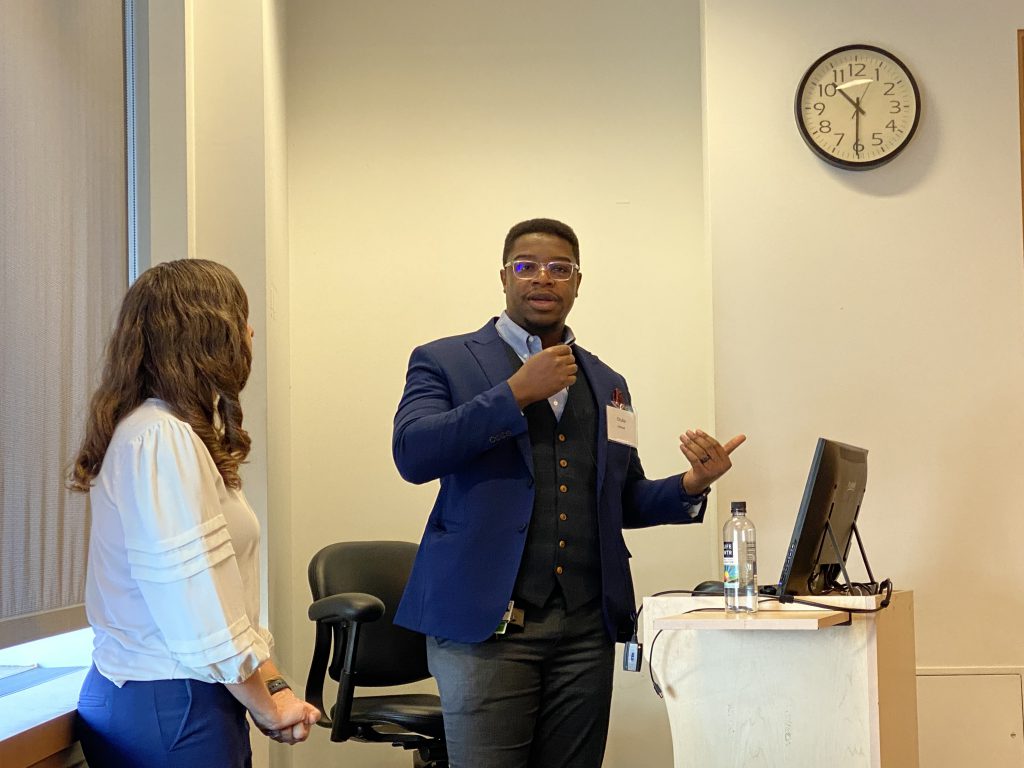
Emezue’s talk, “Reimagining Trauma- and Equity-Focused Support for Boys and Men on Both Sides of the Gun,” focused on violence prevention in young Black men. “Young Black men are 24 times more likely to die from firearm-related homicides,” he said, observing that data collected in Chicago show that many individuals occupy multifaceted roles as witnesses, victims, and perpetrators of violence. “By the time they get to age 24, they will have experienced an average of three deaths or losses related to homicides or other multiple causes.” Citing evidence that members of this demographic nearly all have smartphone access and demonstrated willingness to engage in telehealth, Emezue described Brotherly Act, a digital skills training intervention based on Acceptance and Commitment Therapy focused on reducing violence and substance use, which he is developing in dialogue with young Black men in Chicago. “Many of them are well aware of violence,” he said. “They were born into it. There’s a very high level of helplessness and hopelessness among this group. On multiple occasions I’ve had some of them say that they’re more afraid to live than they are to die.” He suggested a digital alternative could reduce barriers to care, including service avoidance, and address issues such as recidivism and relapse.
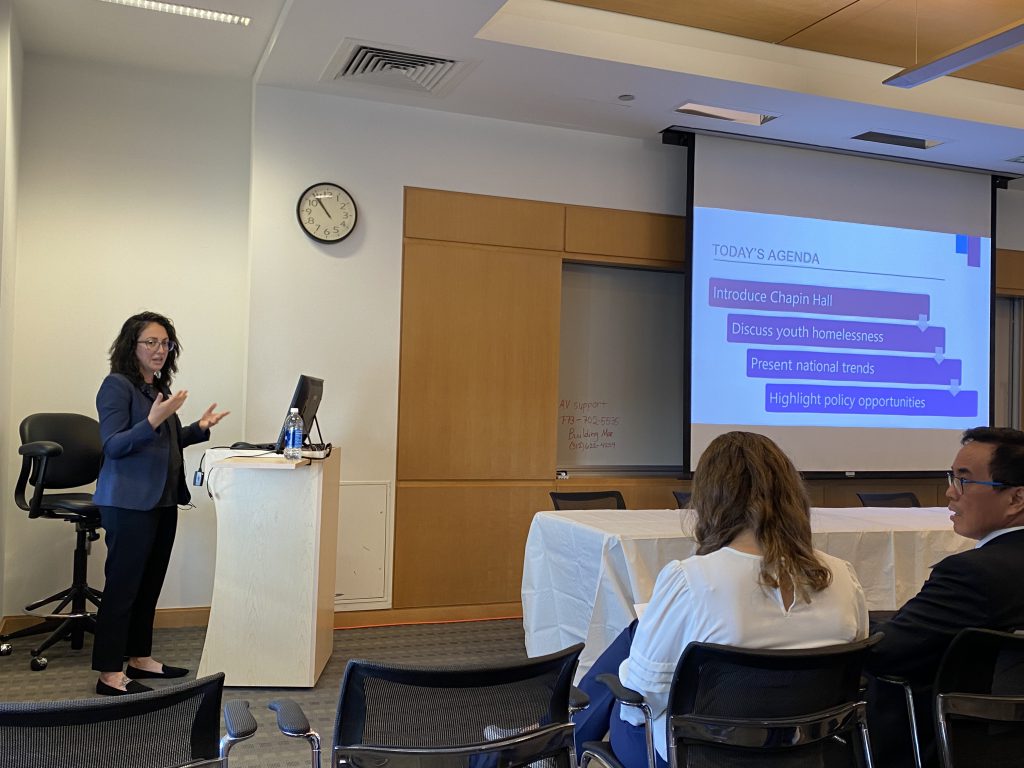
In her talk, “Mental Health Trends Among Youth at Risk for and Experiencing Homelessness in the United States,” Kull spoke about the prevalence of homelessness among American adolescents, which is higher among socially marginalized youth, such as those identifying as LGBTQ+, as well as youth of color. Many of the risk factors for homelessness overlap with other social determinants of health, and about 70% of homeless youth surveyed by Chapin Hall report an existing mental health condition such as PTSD, depression, and anxiety. In partnership with the National Runaway Safeline (NRS), the federally supported national communication system for runaway and homeless youths and youths in crisis, Chapin Hall studied trends in youth mental health needs, specific mental health conditions, and additional challenges youth with mental health conditions face. Kull noted that policy on youth homelessness typically operates as a crisis response to youth who are already homeless. She urged programs and services to consider the youth population more holistically and focus on prevention and housing stability. “We have to ask ourselves where it is critical to embed supports for young people,” she said. “The answer is everywhere that these young people are showing up in the system … We need to be leveraging schools as opportunities for screening and supporting mental health.”
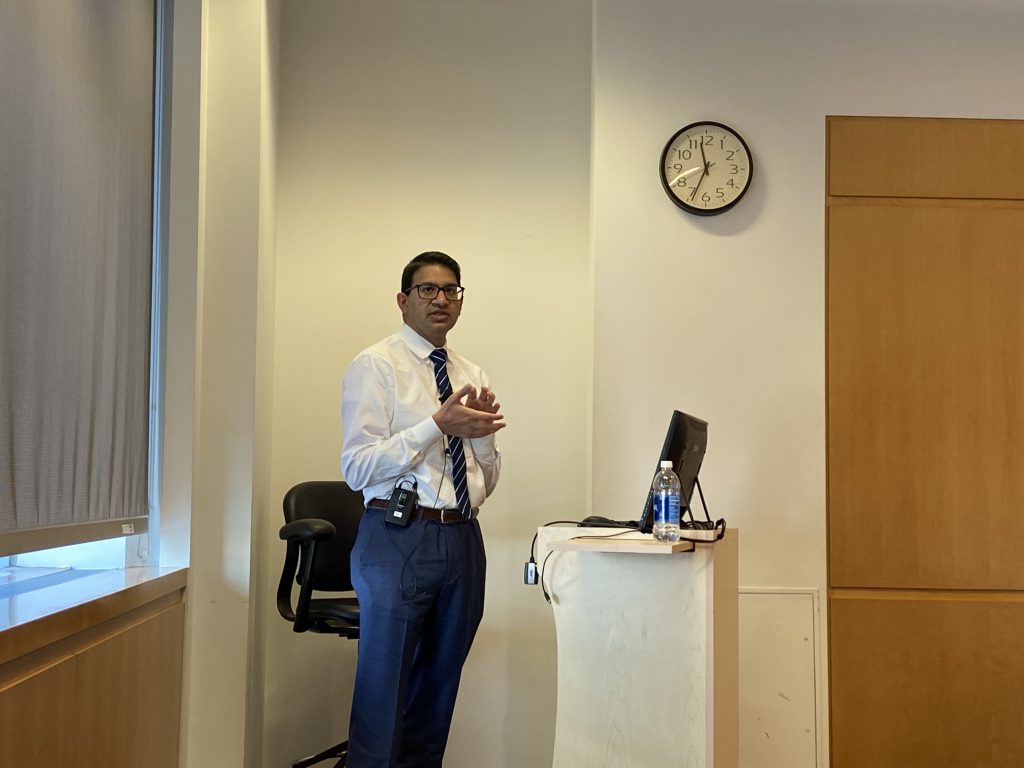
In his keynote lecture, “The State of Illinois’s Adolescent Health: An Illinois Department of Public Health Update,” Vohra affirmed that the state of Illinois, under the leadership of Governor Pritzker, has committed to prioritizing youth mental health through the Children’s Behavioral Health Transformation Initiative, a partnership among Illinois departments of human services, children and family services, juvenile justice, healthcare and family services, state board of education, and public health to adjust capacity, streamline processes, intervene earlier, increase accountability, and develop agility. Defined goals include creating a centralized resource for families seeking services for children, linking families to services in their communities, offering universal mental and behavioral health screening in schools and pediatrics, facilitating communication, and fortifying community networks by investing in community and parent leadership. Vohra also mentioned a firearms restraining order act, a billion dollar investment in reducing the opioid epidemic, and the state of Illinois joining 33 other states in suing Meta for business practices that harm children. “At heart, public health is about prevention and community building,” he said.
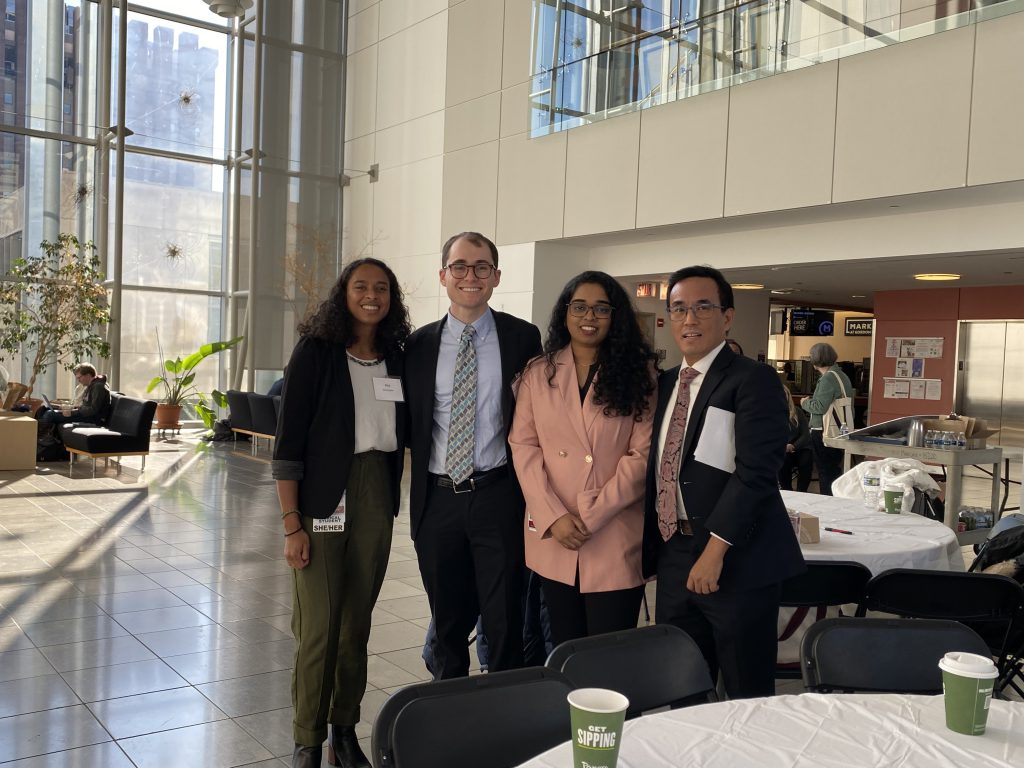
After the lectures and panel discussion, the Symposium continued with lunch and a poster session. The winner of the poster session was Alia Richardson of the University of Chicago Pritzker School of Medicine, with a poster entitled, “Psychosocial Predictors of Adolescent Depression and Mental Health Referral in a Mobile Medical Unit on Chicago’s South Side.” First runner-up was Eli Falk of the University of Chicago Pritzker School of Medicine, with a poster entitled, “Effectiveness of Multilevel and Multidomain Interventions to Improve Diabetes Outcomes in US Racial/Ethnic Minority Populations.” Second runner-up was Deekshitha Turaka of the University of Chicago Department of Neurology, with a poster entitled, “The Effects of Time on Consent for Organ Donation in Traumatic Brain Injury Patients Declared with Brain Death.”
